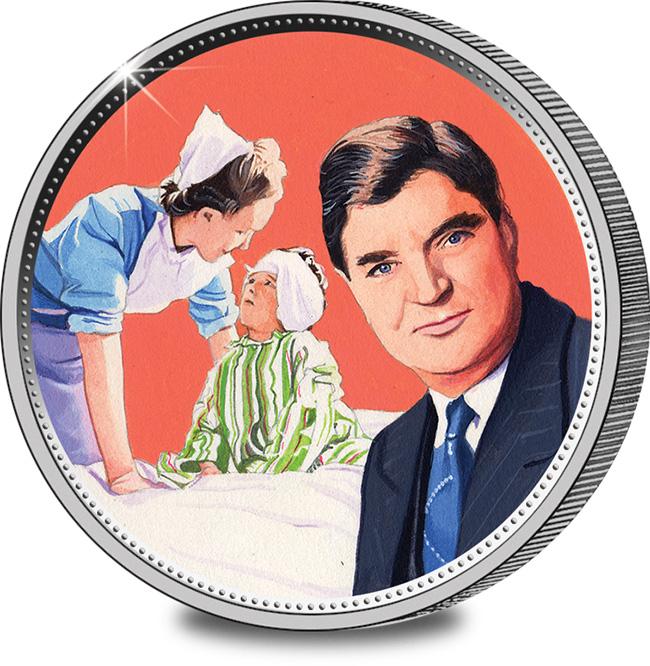
 |
Full name: Aneurin Bevin
Born: 15th November 1897
Invention/Achievement: The National
Health Service - medical treatment for all, free at the point of
use.
Date of
introduction/Achievement: 1948
Died: 6th July 1960
|
Dr Benjamin Moore, in his book "The Dawn of the Health Age",
first used the term "National Health Service". Aneurin Bevin
was the main driving force behind its establishment.
Most people in Britain have never known life without the
National Health Service, but before 1948 health care generally had
to be paid for.
During World War II an Emergency Medical Service was provided to
treat those injured by enemy action and voluntary hospitals given
government subsidies. In fact there was a cross party
recognition that reform of the health service was going to be
necessary, but disagreement on what form this should take.
The Beveridge Report of December 1942 recommended a National
Health Service, with GPs working through health centres and
hospitals run by regional health authorities. Despite the
concerns of the British Medical Association, the Cabinet endorsed a
White Paper of 1944 that endorsed these principles.
When the Labour government won a landslide victory after the
war, the Minister of Health Aneurin Bevin decided that local
authorities were too small and too poor to manage the hospitals.
He said the only course was, "…to create an entirely new
hospital service to take over the voluntary hospitals and…the local
government hospitals and organise them as a single hospital
service." This structure was established by the National Health
Services Act of 1946 and the National Health Service was launched
on 5th July 1948.
Although the founders of the NHS had envisaged that it would
reduce in size as the nation's health improved, in fact it
continued to grow in response to the vastly increased demand and in
1950 prescription charges were introduced.
An aging population exacerbated these problems and successive
government carried out major reforms in the structure and
management of the service and continue to do so.
Today, the National Health Service is widely recognized as a
central benefit of life in Britain. In 1948 its budget was
£437 million (about £9 billion at today's values).
In 2012/13 it was £127.48 billion, employing 1.6 million people,
making it one of the world's largest employers. Although many
see the cost as excessive, according to the World Bank Britain
spends 9.4% of its GDP on health, lower than the EU average of
10.2% and substantially lower than the OECD (i.e., industrialised
countries) average of 12.4%.